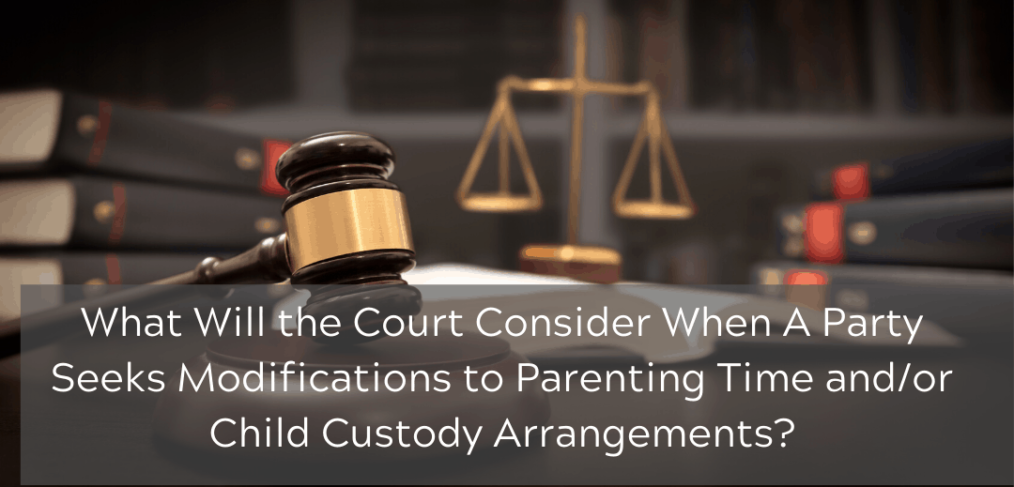
What Will the Court Consider When A Party Seeks Modifications to Parenting Time and/or Child Custody Arrangements?
In family law matters, the past behavior and practices of the parties will always be examined whenever change is sought. Michigan law in this area is well established and courts are continually bombarded with parents asking for modifications to child custody or parenting time arrangements. One common mistake that many parents make, is that they assume past indiscretions or old issues can be brought up when seeking modification of prior orders. When asking the court to change an existing custody and/or parenting time arrangement, a court will only consider occurrences in the time period after the last court order was made.
In other words, reliance on old facts will not support or help a request to change an existing child custody or parenting time agreement. Therefore, if a mother agreed to joint legal and physical custody, she cannot rely on the previously known facts to seek a custody modification if the children have not been harmed and are not in danger of immediate harm. This is because the first threshold to cross in such matters is the existence and proof of “proper cause” or a “change of circumstances.”
An attempt to change or limit parenting time will fail if you have left the child in the father’s care while ignoring the problem on which you now rely. For example, a claim is made that the father should have supervised parenting time because he engages in a certain type of unacceptable behavior. However, the mother has used the father for childcare and has gone along with the parenting time schedule without taking action to limit his access to the child. To now say that father is a danger to the child’s health, safety and welfare would be contradicted by mother’s past behavior. It would therefore have little or no bearing on the court’s discretion as to whether to modify the existing arrangements.
The time to address known parental defects is before agreeing to custodial and parenting time arrangements, not after. The burden of proof is not as high as when change is sought and when there is probably no established custodial environment with either parent.
Rachel Frawley
Latest posts by Rachel Frawley (see all)
- January 2026 – What’s Happening - December 24, 2025
- How to Survive the Holidays During Separation - December 10, 2025
- Finding Clarity Before the Holidays - November 3, 2025



